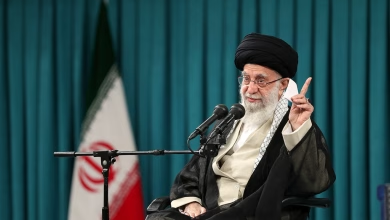Fethullah Gülen, Turkish Cleric and Erdogan Rival, Dies in the U.S. at 83

- In a 2017 interview, Fethullah Gulen declared he had no plans to flee the U.S. to avoid extradition.
- He appeared frail during the interview, walking with a shuffle and accompanied by his longtime doctor.
- Gulen traveled to the U.S. for medical treatment but opted to stay due to a criminal investigation in Turkey.
- His statements reflect his ongoing tensions with the Turkish government, which has sought his extradition.
Fethullah Gulen, the U.S.-based cleric known for building a powerful Islamic movement in Turkey and beyond, has passed away at the age of 83. His death was reported by Herkul, a website that publishes his sermons, which announced that he died on Sunday evening in a U.S. hospital where he was receiving treatment. Gulen had spent his later years embroiled in accusations of orchestrating an attempted coup against Turkish President Tayyip Erdogan.
Once an ally of Erdogan, Gulen’s relationship with the Turkish leader soured dramatically. Erdogan blamed Gulen for the 2016 attempted coup, which involved rogue soldiers seizing control of warplanes, tanks, and helicopters, resulting in the deaths of approximately 250 people. Despite these accusations, Gulen consistently denied any involvement in the coup attempt and had been living in self-imposed exile in the United States since 1999.
Gulen’s movement, known as “Hizmet,” which means “service” in Turkish, aimed to promote a moderate form of Islam, emphasizing Western-style education, free markets, and interfaith dialogue. However, since the failed coup, the Turkish government has systematically dismantled Gulen’s movement within the country, leading to a significant decline in its influence both domestically and internationally.
Known affectionately as Hodjaefendi, or “respected teacher,” Gulen was born in 1941 in a village in the eastern Turkish province of Erzurum. He was the son of an imam and began studying the Koran from a young age. His rise as a prominent preacher began in 1959 when he was appointed as a mosque imam in Edirne and later gained recognition in Izmir during the 1960s by establishing student dormitories and engaging with the community.
Over the decades, Gulen’s informal network expanded through educational initiatives, business ventures, media outlets, and state institutions, granting his followers substantial influence. This influence extended beyond Turkey to various regions, including Central Asia, the Balkans, Africa, and the West, through a network of schools associated with his movement.
Fethullah Gulen was once a close ally of President Erdogan and his AK Party, but their relationship soured dramatically in December 2013 when corruption investigations emerged, targeting ministers and officials close to Erdogan. It was widely believed that prosecutors and police affiliated with Gulen’s Hizmet movement were behind these investigations. This tension escalated in 2014 when an arrest warrant was issued for Gulen, and two years later, his movement was designated a terrorist organization.
Following the attempted coup in 2016, Erdogan condemned Gulen’s network as traitors, describing them as “like a cancer” and pledging to eradicate their influence. The Turkish government responded by shutting down hundreds of schools, businesses, media outlets, and associations linked to Gulen, seizing their assets in the process. This crackdown marked a significant expansion of state power in the wake of the coup attempt.
In a statement, Gulen condemned the coup attempt “in the strongest terms,” expressing that it was particularly insulting to be accused of involvement given his history of suffering under military coups in Turkey over the past five decades. He emphasized his disassociation from any actions related to the coup, highlighting his long-standing commitment to peace and democracy.
The aftermath of the failed coup saw a widespread crackdown on Gulen’s followers, with at least 77,000 arrests and the suspension of 150,000 state employees, including teachers, judges, and soldiers, under a state of emergency. Companies and media outlets believed to be connected to Gulen were either seized by the state or shut down entirely. Meanwhile, Gulen became an increasingly isolated figure in Turkey, vilified by Erdogan’s supporters and alienated from the opposition, which viewed his network as a long-term threat to Turkey’s secular republic. Ankara has consistently sought Gulen’s extradition from the United States, where he has been living in self-imposed exile.
In a 2017 Reuters interview conducted at his gated compound in the Pocono Mountains of Pennsylvania, Fethullah Gulen stated that he had no intention of fleeing the United States to escape extradition. At that time, he appeared frail, shuffling as he walked and accompanied by his longtime doctor.
Gulen had initially traveled to the U.S. for medical treatment but chose to stay due to an ongoing criminal investigation against him in Turkey.






